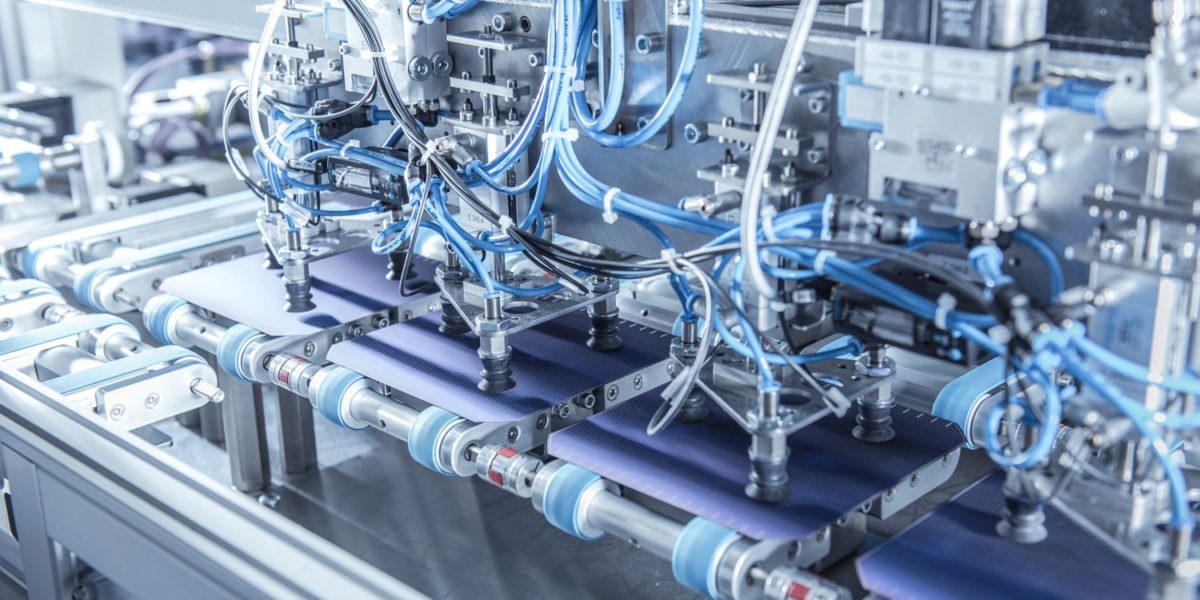In the past few months a lot has changed in terms of photovoltaic production in Germany and Europe. A number of manufacturers are looking to set up gigawatt fabs.
The most prominent examples are undoubtedly Meyer Burger, which is currently building large-scale heterojunction cell and module production facilities in Germany, and REC, which is planning to manufacture highly efficient solar modules on a gigawatt scale in France. In contrast to China, however, these ventures in Europe pose a rather arduous task, especially when it comes to raising the financial resources. One reason for this is that there is no clear industrial policy strategy.
It's against this background that Meyer Burger and inverter manufacturer SMA have jointly drawn up recommendations for government policy aimed at the creation of a national and European industrial strategy. In their published whitepaper, “Solar production in Germany: Strategic innovation leadership as a cornerstone of European energy sovereignty”, they outline approaches for expanding competitive value creation in Germany and Europe based on local technologies and innovations.
Companies from Germany and Europe remain world leaders in research and technology development, the paper notes. A forward-looking industrial policy could strengthen Europe as a production location and turn technologies into successful exports, creating more than 100,000 jobs in the process. To that end, SMA and Meyer Burger propose four measures.
Point one on the list is the creation of a fair market for sustainable electricity production. “The funding instruments of national and European project and development banks should, in addition to solar power generation, include the production of technology,” the white paper states. “National and European economic stimulus programs to cope with the economic consequences of the COVID-19 pandemic and to transition to climate neutrality should support the regional production of solar technology.”
Secondly, Germany's Renewable Energy Sources Act (EEG) reform should be used as a “building block for energy sovereignty”. The annual expansion corridor for photovoltaics in Germany must be raised to 10 gigawatts and solar self-consumption must be promoted more strongly. In concrete terms, Meyer Burger and SMA are committed to significantly increasing the de minimis limit for exempting self-consumption and to facilitate installations in the commercial and industrial sectors. This is a first step on the way to a prosumer society.
Thirdly, the companies call for the adoption of new concepts and efficient technologies for space-saving photovoltaic expansion. Long-term land use concepts are needed. In addition, new approaches such as agro-photovoltaics and floating systems should be promoted. “The use of the most efficient technology is essential in order to gain as much energy as possible from a minimal area, both for roof systems and for open-space systems,” the companies state. “In order not to get into similar conflicts as with wind energy on land, government leaders should already intervene to control land use.”
Finally, the companies also advocate a national 10 million and European 100 million roof program. There should be a solar requirement new buildings in combination with smart home storage systems, a simplification of tenant electricity models and separate tenders for large PV systems in urban areas. This would stimulate solar demand for the establishment of a “secure, inexpensive and climate-friendly energy supply”.
“Worldwide commitments and initiatives for more climate protection, increasing efficiency of cells, modules and inverters as well as solar radiation that is available practically everywhere will lead to solar energy becoming the most important source of energy in the long term,” explained SMA CEO Jürgen Reinert. The German PV industry has made a significant contribution to this development in recent years, he added. “We now need fair and resilient framework conditions in order to continue writing this success story and to accelerate the global energy transition through our unique know-how.”
Meyer Burger CEO Gunter Erfurt added that there was an opportunity for Germany and Europe to “use the boom in solar energy and set the pace for this key renewable energy technology”. However, this is only possible under certain conditions, he noted. “For this we need a holistic industrial strategy that takes into account the generation of electricity and the production of necessary technologies side by side. We need short-term supportive measures that improve the framework.”
SMA and Meyer Burger stress the importance of both electricity generation and the production of necessary technologies, noting that in an ever-growing solar market, it's important not to be dependent on exports. “Without a strategic industrial policy approach to European solar production, we will be completely dependent on foreign suppliers in the future. We are giving away the chance of broad European added value,” said Erfurt.
Reinert sees the current EEG reform as an opportunity to advance the expansion, noting with a view to the climate targets that the changes to the law “must not be the end point here. The debate must go on.”
This content is protected by copyright and may not be reused. If you want to cooperate with us and would like to reuse some of our content, please contact: editors@pv-magazine.com.




By submitting this form you agree to pv magazine using your data for the purposes of publishing your comment.
Your personal data will only be disclosed or otherwise transmitted to third parties for the purposes of spam filtering or if this is necessary for technical maintenance of the website. Any other transfer to third parties will not take place unless this is justified on the basis of applicable data protection regulations or if pv magazine is legally obliged to do so.
You may revoke this consent at any time with effect for the future, in which case your personal data will be deleted immediately. Otherwise, your data will be deleted if pv magazine has processed your request or the purpose of data storage is fulfilled.
Further information on data privacy can be found in our Data Protection Policy.